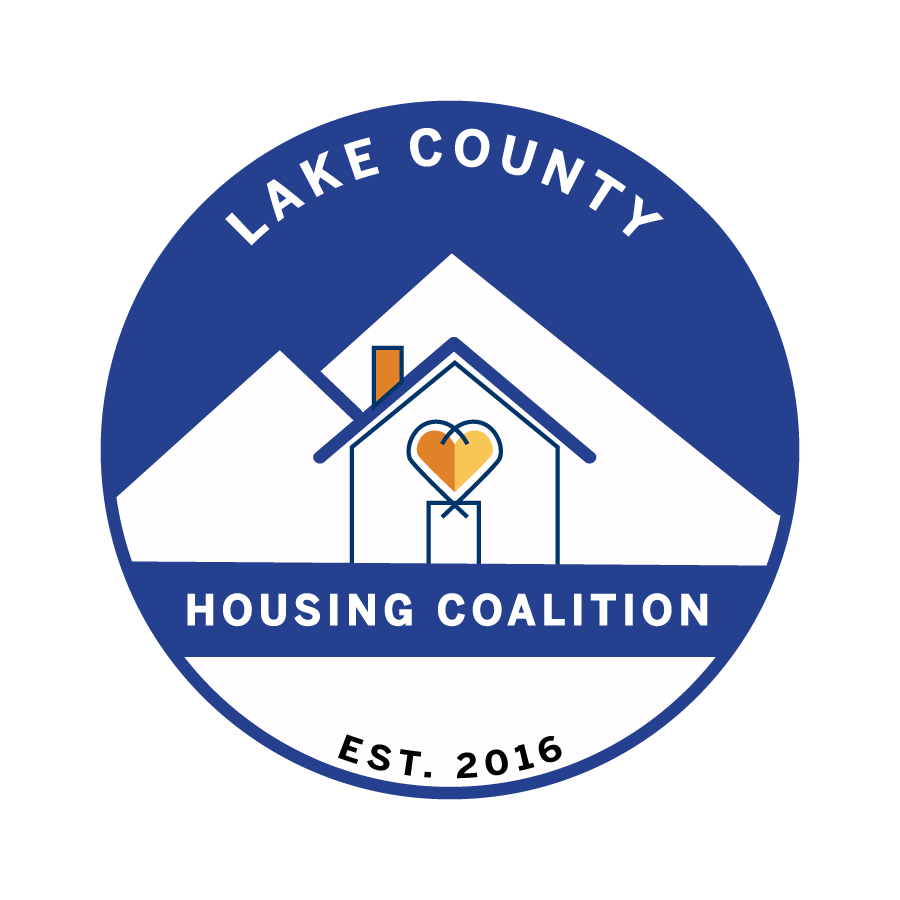
FAQsFrequently Asked Questions about Housing in Lake County
Community Housing is the term that Lake County Housing Coalition uses to describe affordable, attainable, and workforce housing when advocating for housing issues. Community Housing is built to help our community members stay in place in the community. Current housing prices are so far out of reach for most residents that it is often forcing people to move out of the county. We’re working hard to stop this from happening.
There is a variety of things state, and nationwide that are making housing unaffordable, including rising supply prices, supply chain delay, and labor shortages. Locally, the labor issues are even more difficult since 75% of our community members work out of the community, and it is difficult to convince those folks to come back to work in town. The issue of a limited workforce also impacts how efficiently the county and city can respond to builders and developers. Next, we have a shorter building season which can make it difficult for building to be completed on time. Additionally, with large boulders and steep hills, building housing is not possible everywhere. Another issue is that our community has an abundance of land but does not have the same budgets that surrounding communities have to invest in housing projects. Lastly, many folks who need housing are competing with out-of-county buyers who bring more money to the table, and many community members don’t know where to turn to for help or to prepare financially to buy a home.
All of these challenges are quite overwhelming, and hopefully you can see why we need to implement many policy changes to address the problems.
The amount spent by a household on rent (utilities included) or mortgage payments (principal, interest, taxes, insurance, and any HOA dues) should not exceed 30% of the Household’s gross combined income. An example of this is if your household has a gross income of $6,000 (Approximately the Area Median Income for a household of 4), they should spend no more than $1,800 on housing. The median Lake County house price in 2022 is $522,000, which results in a mortgage payment of approximately $2,564.
The Housing Coalition is a group of community members who volunteer their time to enact strategies to eliminate barriers to quality, healthy housing for all Lake County residents.
Anyone! If you are concerned about housing and want to participate with the Housing Coalition, email Kristi@lcbag.org.
The Leadville Housing Authority is an organization empowered by the City of Leadville to perform housing program management and (often) development on behalf of a municipality, county, or region. Housing Authorities have the legal ability to provide various services that benefit housing in the community, such as being exempt from paying state or local taxes on housing developments. The Leadville Housing Authority was created in 1981. They run the Mount Massive Manor, an affordable housing apartment complex for the elderly and disabled community. Currently, the Leadville Housing Authority can only serve community members who live within city limits. However, they are working on expanding to a Multi-Jurisdictional Housing Authority that will be able to serve all of Lake County.
Unfortunately, there are no Community Housing units available to rent or purchase right now. However, there are two projects in the works that we hope will be built in late 2023 or 2024.
The Housing Coalition wants all Lake County residents to have access to this housing when it is built. Some folks may need to work to become homebuyer-ready (link to financial literacy classes). Others may just need to stay in the know to be aware of the application process (link to join).
All community members who do not currently own a home should take a financial literacy class. This will be your first step in preparing to rent or purchase Community Housing. It can take folks between 6 months and 2 years to establish or repair credit to become homebuyer ready. We don’t want folks to wait to start working on this until the units are available, as that may be too late. Please start this work now by joining the next class(link to financial literacy classes).
Yes,being cost-burdened (spending more than 30% of your income on housing) or experiencing housing instability has proven to be related to increased rates of:
- Substance abuse
- Cardiovascular problems
- Diabetes
- Mental health crises
- Domestic abuse
Additionally, if a household spends too much on housing, they have limited money to spend on healthy food, medical care, exercise, and relaxation opportunities that impact overall health.
Here is a 9-minute video explaining the connection between housing and health.
Yes, click here to review the Glossary of Housing Terms.
If you are concerned about housing and want to participate with the Housing Coalition, email Kristi@lcbag.org. You can also join any public housing meeting, go to our calendar to find the next meeting information.
